Fisk University
1907
World renowned for its Jubilee Singers, Fisk University was also at the center of a vibrant Black theater scene in the early 20th century, at a time when theaters were segregated or banned audiences of color. In 1907, Fisk staged The Merchant of Venice for inclusive audiences in the University’s Memorial Chapel. The show was part of an effort to build Black artistic identity and community in the city: families were encouraged to attend and proceeds from the show helped fund an endowment for Fisk’s Carnegie Library (now the academic building).
“This is an opportunity to hear and see a play of the highest order without being ‘Jim Crowed.’” –The Nashville Globe, March 1907
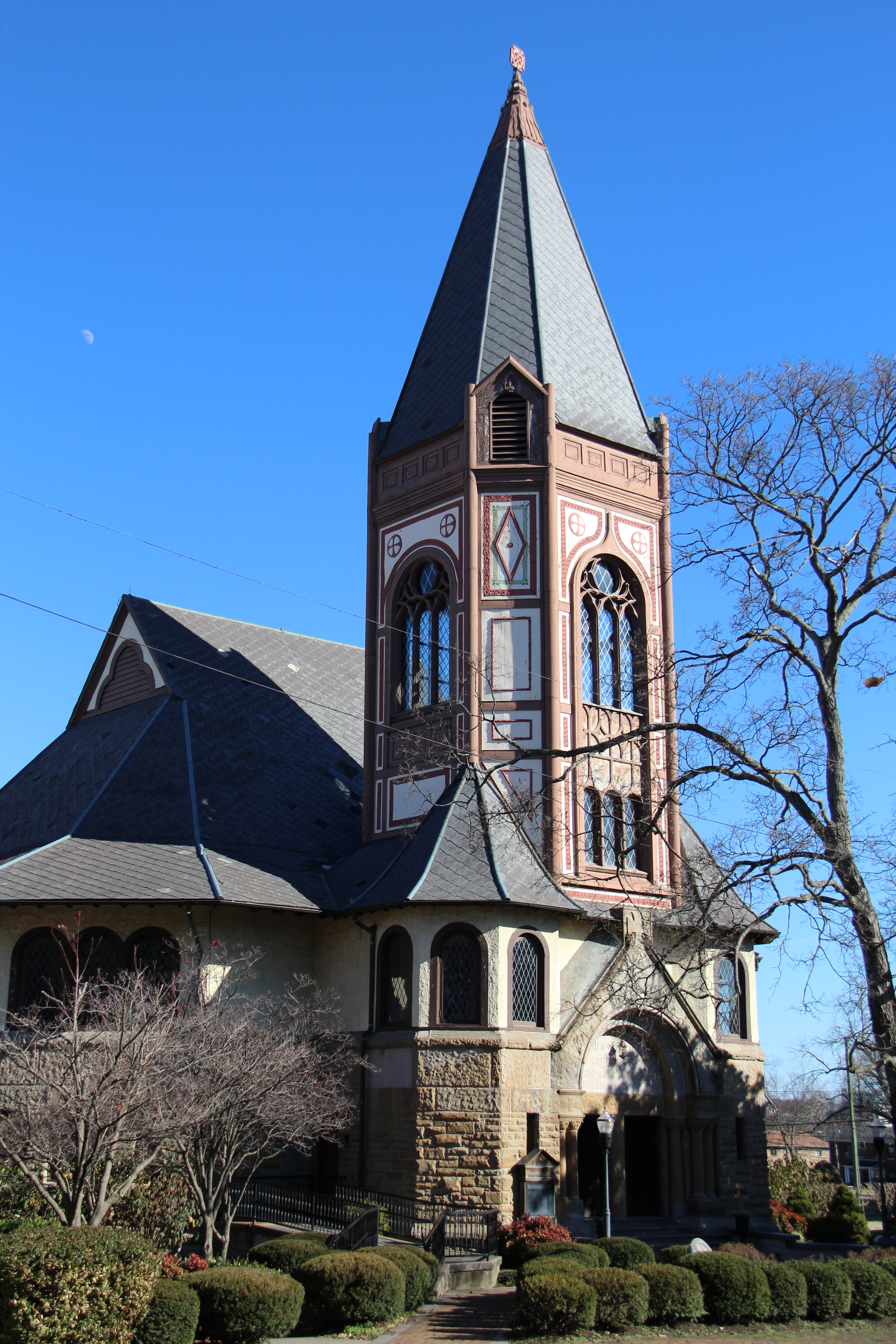
The play also spoke to the racial oppression faced by African-Americans in the Jim Crow South. The Merchant of Venice centers on racial conflict with a Jewish character, Shylock, who is the target of antisemitic racism. Shylock was played by Fisk student Charles Campbell, who, according to one review, portrayed the character’s suffering to rapt audiences.
“As one listened to Campbell . . . he was compelled to see as the Jew saw, and feel as the Jew felt. The audience showed its appreciation of his efforts in the stillness which pervaded the house during his speeches, and the hearty applause which followed them.”
–The Nashville Globe, March 1907
To learn more about Jim Crow laws and early theater in Nashville, click here.
Ward-Belmont College
1916
In 1916, when women still didn’t have the right to vote, the all-female Ward-Belmont College hosted a major Shakespeare pageant that drew in thousands of attendees from across the city. The pageant was staged to commemorate the 300-year anniversary of the death of Shakespeare and nearly all 500 Ward-Belmont students participated in the event. The event, written and directed by Miss Pauline Sherwood Townsend, was a parade of scenes from Shakespeare's life and work and was meant to showcase female artistic talent.
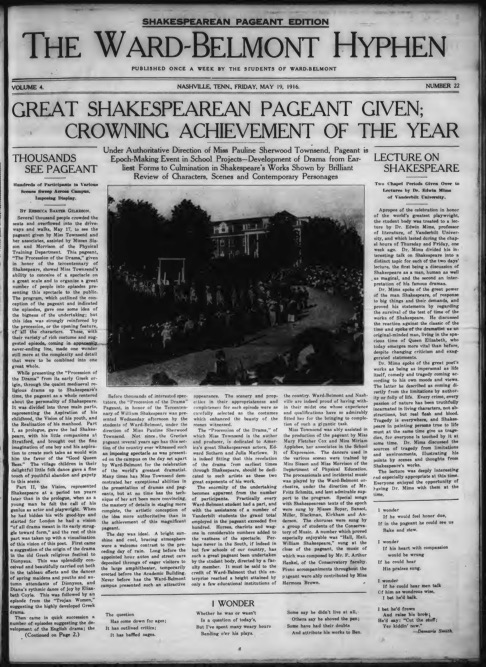
Buford College
1918
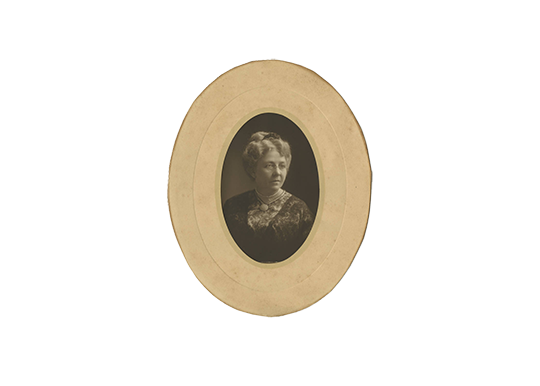
In 1918 Shakespeare’s work helped women in Nashville join a nationwide network advancing education and equality. This was the year when Mrs. Elizabeth Burgess Buford, founder of the Buford College for Young Ladies in Nashville, attended the annual meeting of the National Shakespeare Federation in Washington, D.C., where she gave a speech on Shakespeare and the Bible.
“Mrs. Buford’s brilliant address . . . is said to have been the only paper requested for publication to be distributed . . . among the 100 federated Shakespeare clubs of the United States.”
–The Nashville Banner, May 1918
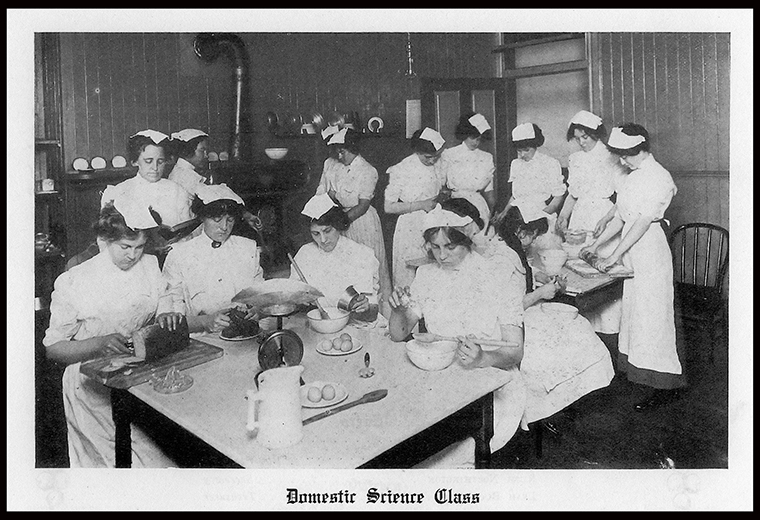
Nearly every city in America had a women’s Shakespeare club in the early 20th century, where women could meet to advance their own education and organize civic activities, including right to vote protests. They discussed topics such as conscience, race, and Shakespeare’s “jealous husbands,” and there were even women, including Mrs. Hannibal Williams, who toured America delivering speeches to these clubs. Mrs. Williams visited the Buford College faculty Shakespeare club in 1911 and 1913, when she gave readings from Romeo and Juliet and The Winter’s Tale—both plays that feature strong female characters who use their voices to speak out.
To learn more about suffrage and Shakespeare in Nashville, click here.
Ryman Auditorium
1949
Another woman who began her career before she had the right to vote was the incomparable Lula Naff, who arguably transformed Nashville’s music industry when she began leasing the Ryman auditorium to touring artists. A widow and mother who came from a humble background, Naff put Nashville on the map when she began bringing national shows to the city, including landmark Shakespeare productions by internationally renowned companies such as the Ben Greet Players.
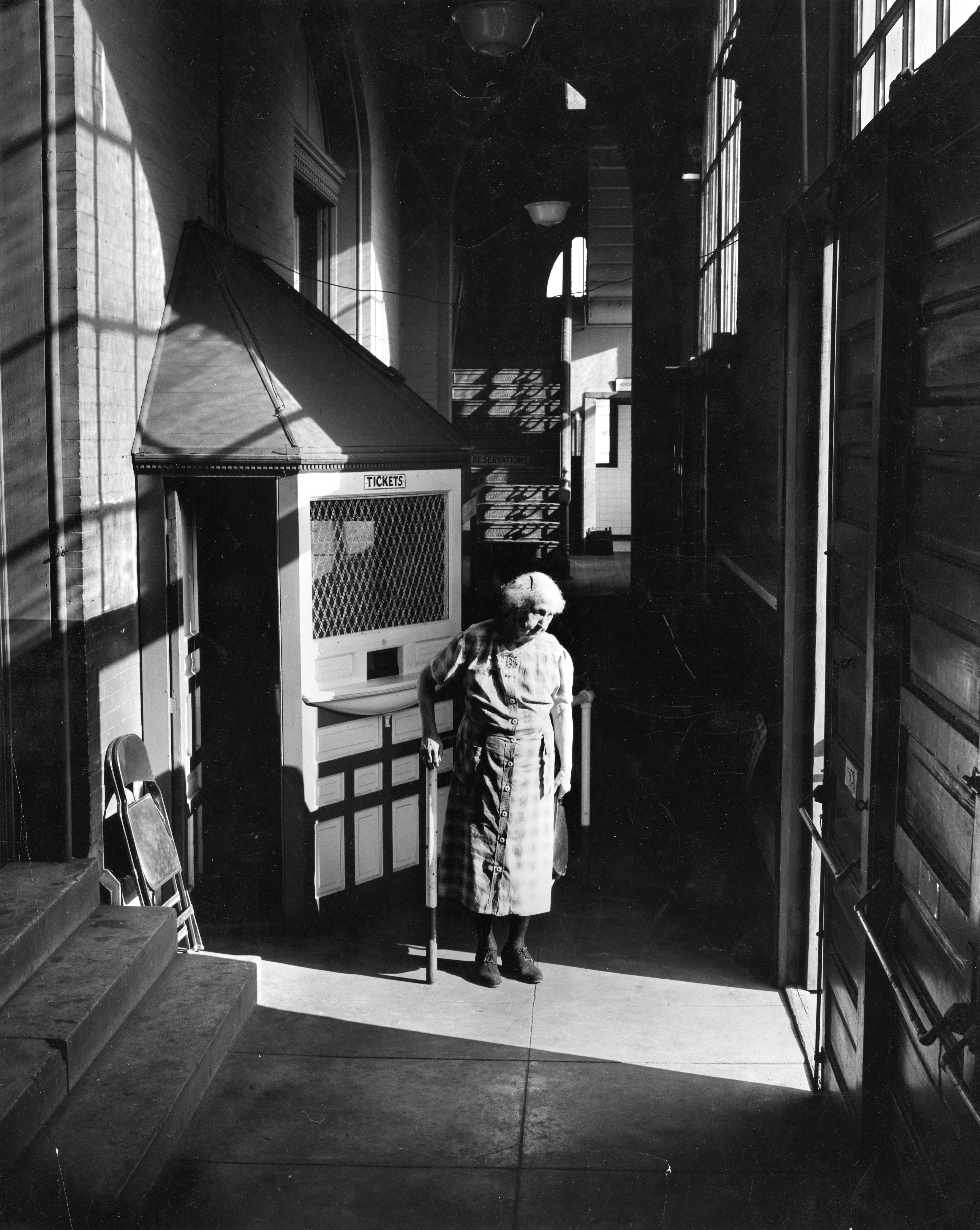
Throughout the late 1940s and 1950s, many women began to build their careers despite cultural pressure to return back to the home following World War II. Naff brought in many women artists, including Margaret Webster’s production of Macbeth in 1949. Webster directed Carol Goodner, another well-known women actor who received top billing in the play. The play, which features an ambitious woman in Lady Macbeth, gave Nashville audiences a chance to experience the desires and limitations of aspiring women trying to make their mark on a male-dominated industry.
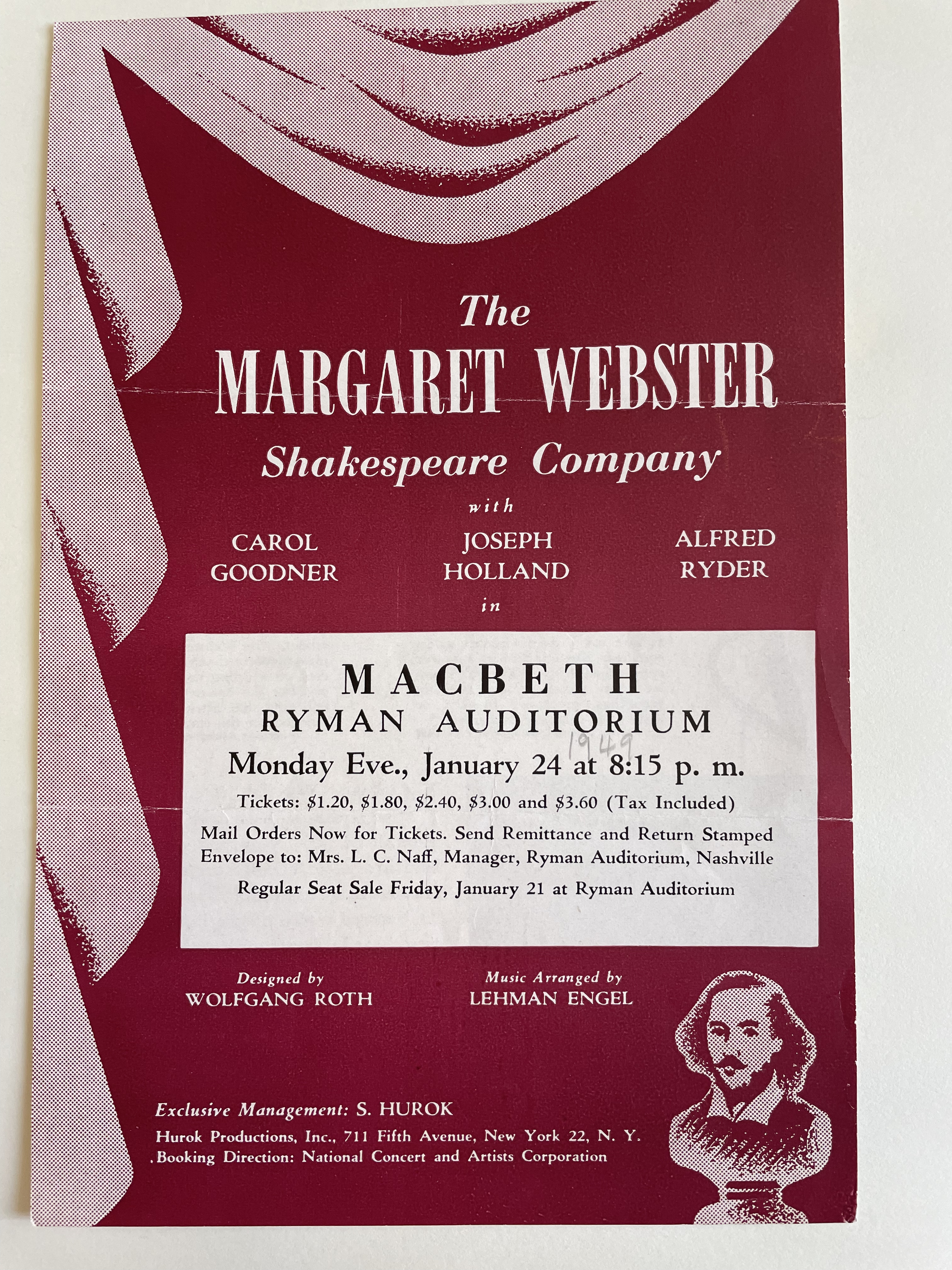
To learn more about professional women and Shakespeare in Nashville, click here.
Tennessee State University
1955
In the 1950s, when America was beginning its move toward desegregation, Black artists in Nashville used Shakespeare’s work to explore the opportunities and limits of integration. Just one year after the Supreme Court outlawed segregation in schools, HBCU Tennessee State University produced Othello, directed by Thomas E. Poag, the first African-American in the United States to earn a Ph.D. in theater and drama.
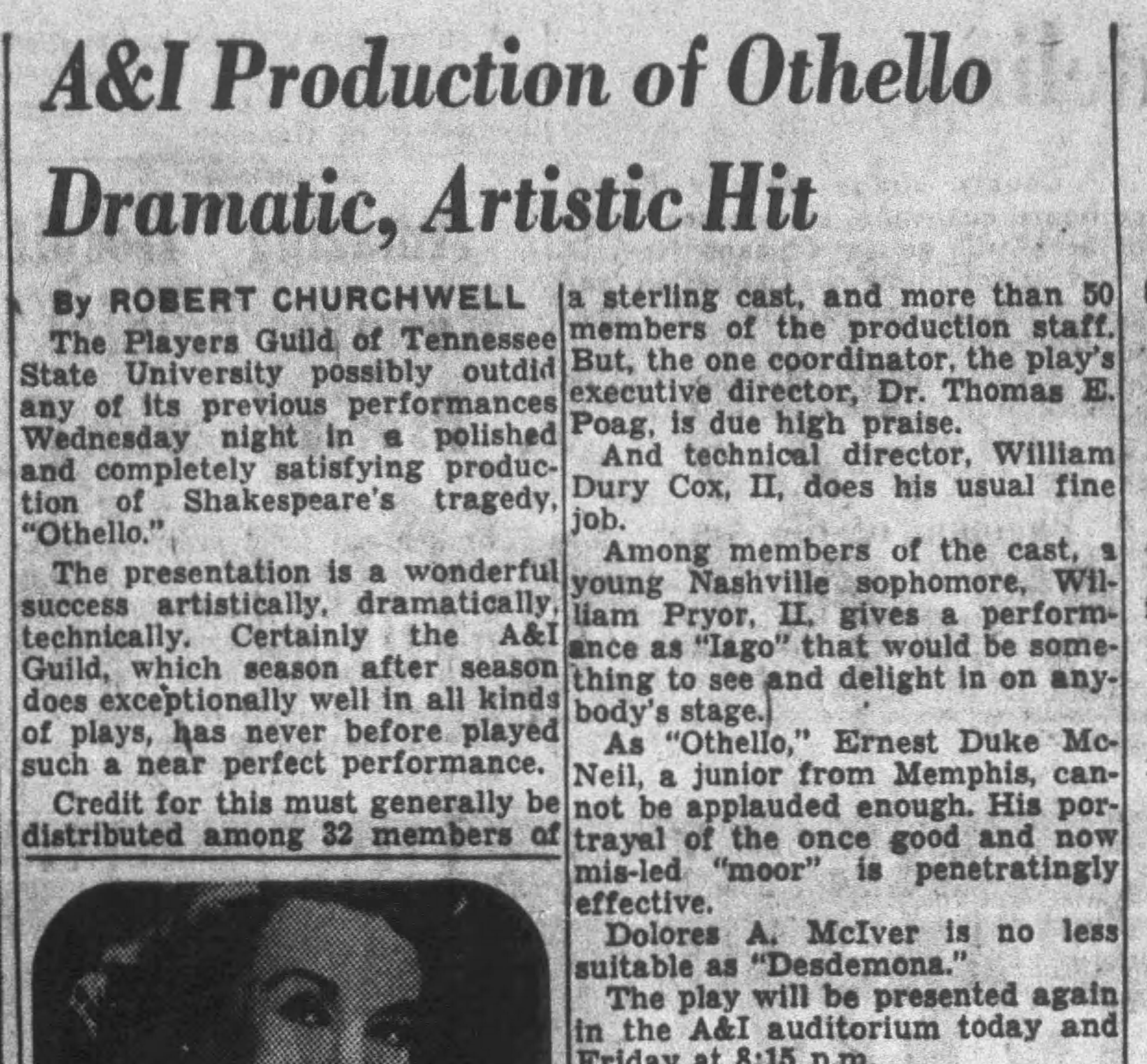
The play was reviewed by Robert Churchwell, the first African-American journalist to earn a fulltime position at The Nashville Banner, known as a conservative white newspaper. His review was published the same year he was given a desk at the paper. During his time with the Banner, Churchwell dedicated himself to inclusive coverage of diverse events in Nashville. He is honored today as the “Jackie Robinson of journalism,” and his legacy includes a school in Nashville that bears his name.
The play Othello centers on an African character’s struggle to integrate within the European society of Venice. The play provided an opportunity for Nashvillians to explore the fight for equality in Shakespeare’s time and in mid-20th century America.
To learn more about Shakespeare and integration in Nashville, click here.
Tennessee Performing Arts Center
2019
Marginalized artists in Nashville have used their voices to “speak back” to Shakespeare and open the door for more inclusive representation in mainstream literature and theater in Music City. In 2015, Nashville poet Caroline Randall Williams published a book of poems, Lucy Negro Redux, that responded to Shakespeare’s “Dark Lady” sonnets. These are sonnets written to a woman who has dark skin and hair. Bynum’s book of poems is based on one question: what if Shakespeare’s Dark Lady was African? Her poems explore Black female identity in Shakespeare’s London and in the American South.
In 2019, Bynum’s book was made into a ballet choreographed by Paul Vasterling, featuring music by Rhiannon Giddens, and performed by the Nashville Ballet. The ballet features Bynum reciting her poetry. With this work, Bynum writes herself into the story of Shakespeare, creating space for more inclusive theater in Nashville.
ONEC1TY
2021
In 2021, the Nashville Shakespeare Festival partnered with Black theater Kennie Playhouse Theatre to co-produce Shakespeare's Twelfth Night alongside August Wilson's Jitney at ONEC1TY. The partnership aims to highlight the work of Black artists in the Nashville community, and to continue a conversation that started in Nashville over a century ago about how Shakespeare speaks to and with marginalized artists and audiences.
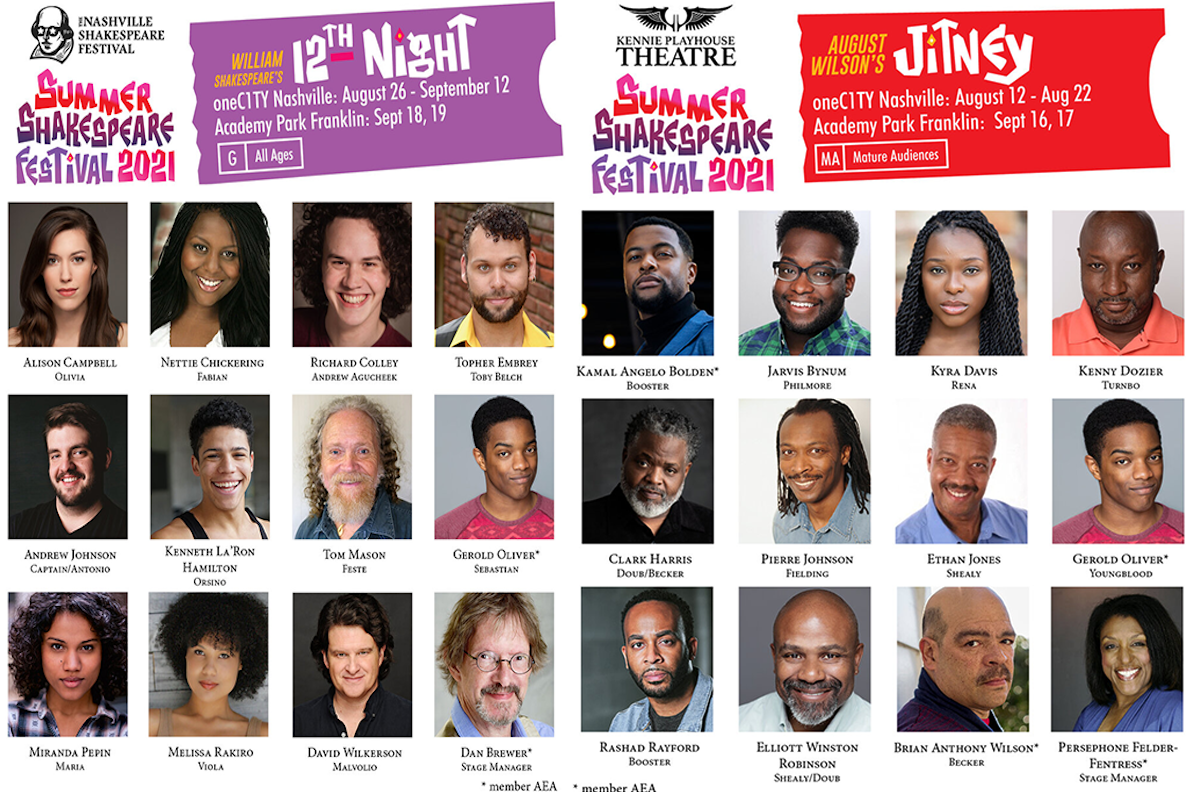
“Shakespeare gives a sense of history and beauty and meaning that transcends cultures”
- Denice Hicks, Executive Artistic Director
The two shows produced in 2021 highlighted their Nashville location, with costumes and music drawn directly from Nashville's music industry. But that's no surprise: Shakespeare is Nashville's playwright.
To learn more about inclusive theater in Nashville, click here.
For Teachers
We encourage you to include "Nashville's Shakespeare" content in your classrooms! Below are some high school assignments that have been used in the past. We're happy to visit your classrooms or chat with you about how you might connect your students with Nashville's theater history, and with Shakespeare. Contact Jayme Yeo for more.
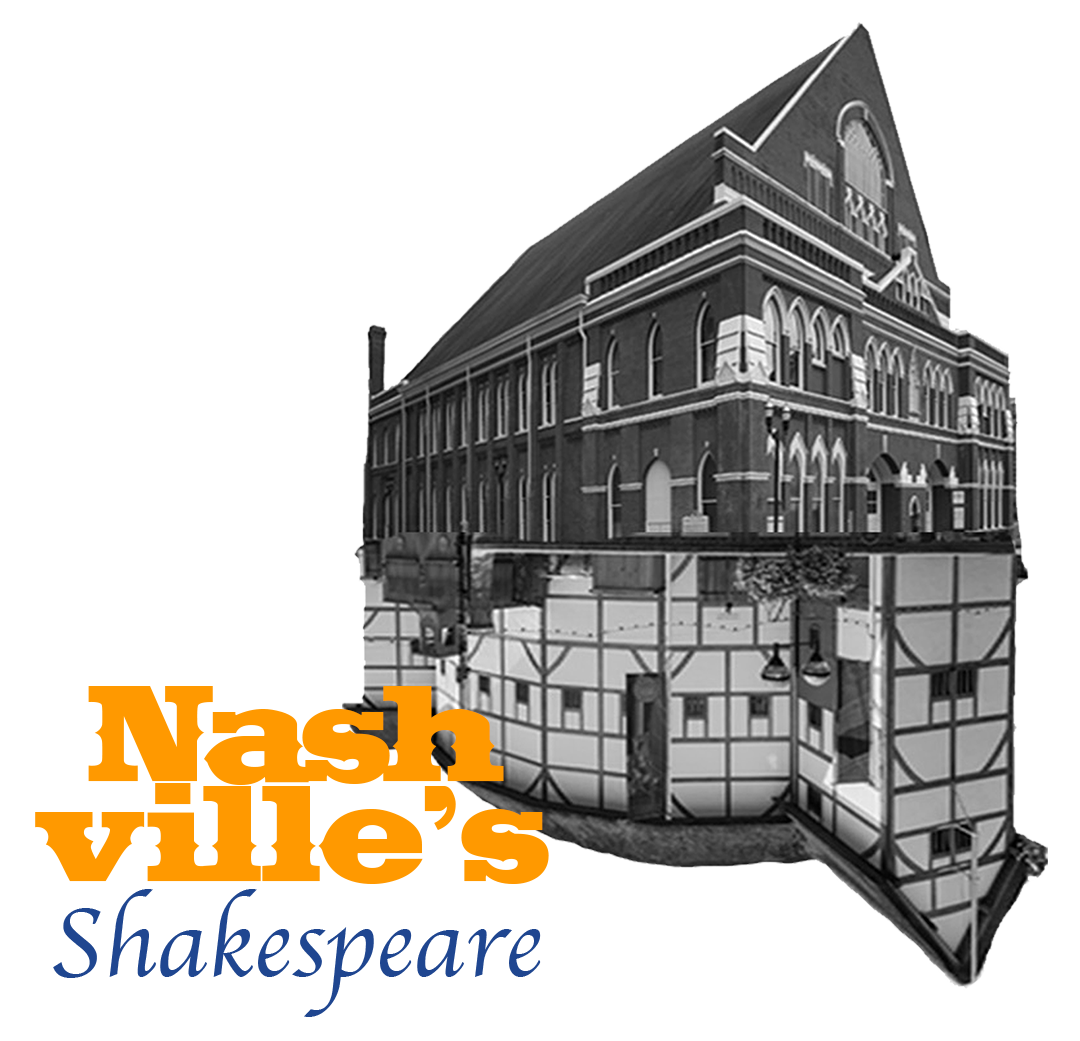 Nashville is home to hot chicken, cool music, and Southern Shakespeare. Surprisingly, Shakespeare’s work has been shaped by the city’s social justice movements, from Black actors who created space for inclusive theater in the Jim Crow South to a theater manager who built her career—and Nashville’s music industry—before she had the right to vote. Read on to hear more about how artists performing Shakespeare changed the history of Music City.
Nashville is home to hot chicken, cool music, and Southern Shakespeare. Surprisingly, Shakespeare’s work has been shaped by the city’s social justice movements, from Black actors who created space for inclusive theater in the Jim Crow South to a theater manager who built her career—and Nashville’s music industry—before she had the right to vote. Read on to hear more about how artists performing Shakespeare changed the history of Music City.